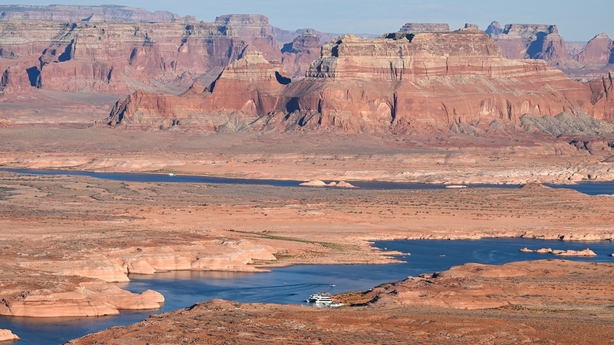Economic uncertainty in the wake of ongoing turmoil in the global banking sector is likely to continue for some time according to political economist Mark Blyth.
Blyth, who is the director of the William R. Rhodes Center for International Economics and Finance at Brown University, is also doubtful that inflation rates will be regressing any time soon either.
"We are heading into a world whereby you're going to have basically around 3-4% inflation and that's going to be hard to get rid of. It's just a totally different world," Blyth told Katie Hannon on Upfront: The Podcast.
We need your consent to load this rte-player contentWe use rte-player to manage extra content that can set cookies on your device and collect data about your activity. Please review their details and accept them to load the content.Manage Preferences
Banking volatility, supply chain issues, the Covid-19 pandemic and the war in Ukraine have all contributed to the current panic but the threat of climate change will likely add to the growing pain.
"The things that used to be very stable are now unstable and that suggests volatility in prices. Last year the Po Valley (in Northern Italy) dried out. Italian agriculture went down by about 30%," Blyth said.
"America is a net agricultural exporter. It's one of the main reasons it's a superpower. All of that relies on the Colorado River. The Colorado River is basically 30% from being dead. It could in my lifetime. At that point nobody lives west of Colorado.
"You shouldn't worry about a little supply shock causing a 5% inflation. You should be looking for the bigger (trouble) coming down the line."

The coming green transition, while necessary according to Blyth, will lead to increased government spending in years to come and that outlay will be felt by taxpayers.
"I think that's how the politics have changed. Europe is very serious about this stuff. How can you have 1990s fiscal thinking and fiscal institutions at the heart of the EU when you need to do a multibillion or multi trillion euro build out of green infrastructure."
Blyth is also the author of several books, including Austerity: The History of a Dangerous Idea and Angrynomics, and he believes the recent collapse of Silicon Valley Bank (SVB) in the United States and the last minute-rescue of Credit Suisse were entirely predictable.
"This is what happens when you have a globally integrated, massively over levered banking system. It just blows up all the time."
"Between 1945 and 1974, there were no banking crises. Starting in 1974 we basically allowed banks to do all the stuff that we didn't allow them to do for a very long time - lever themselves up, invent secondary futures markets, derivatives, all the rest of it.
"And the minute it actually hits the proverbial fan, they (the US Federal Reserve) just blanketly guarantee everybody's deposits."

In this instance, $400bn dollars was reportedly made available by the Federal Reserve to support its ailing lenders. The failure of SVB was the biggest collapse of a US bank since the global financial crisis in 2008, with bank depositors withdrawing an estimated $48bn dollars in just two days.
All episodes of 'Upfront: The Podcast' can be found here, or wherever you get your podcasts.







